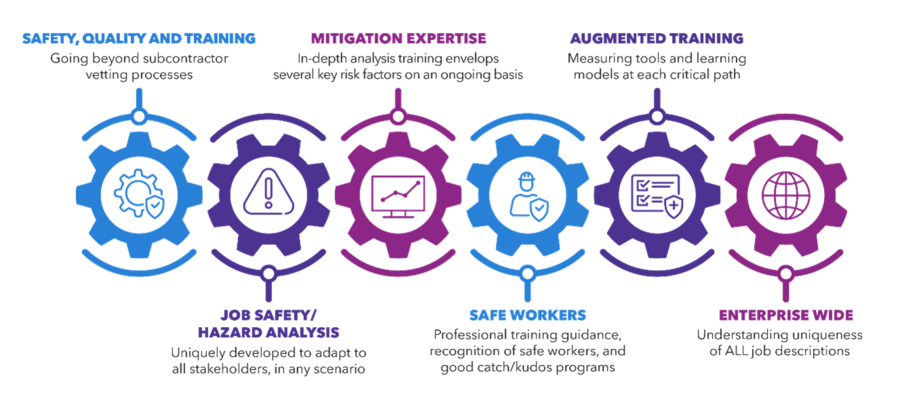MEXICO CITY, Feb. 13, 2026 /PRNewswire/ — FIBRA Prologis (BMV: FIBRAPL 14), a leading owner and operator of Class-A logistics real estate in Mexico, will host a webcast and conference call with senior management to discuss fourth quarter results, current market conditions and future outlook on Tuesday, February 24, at 9:00 a.m. Mexico Time.
To access a live broadcast of the call, dial +1 888 596 4144 (toll-free from the United States and Canada), 800 269 4416 (toll-free from Mexico) or +1 646 968 2525 from all other countries or and enter conference code 4603995. A live webcast can be accessed at www.fibraprologis.com in the Investor Relations section February 24.
A telephonic replay will be available February 24 – March 3 at +1 800 770 2030 from the U.S. and Canada or at +1 647 362 9199 from all other countries using conference code 4603995. The replay will be posted in the Investor Relations section of the FIBRA Prologis website.
ABOUT FIBRA PROLOGIS
FIBRA Prologis is a leading owner and operator of Class-A industrial real estate in Mexico. As of September 30, 2025, the company’s portfolio comprised 515 Investment Properties, totaling 87.0 million square feet (8.1 million square meters). This includes 348 logistics and manufacturing facilities across 6 industrial core markets in Mexico, comprising 65.7 million square feet (6.1 million square meters) of Gross Leasing Area (GLA) and 167 buildings with 21.3 million square feet (2.0 million square meters) of non-strategic assets in other markets.
FORWARD-LOOKING STATEMENTS
The statements in this release that are not historical facts are forward-looking statements. These forward-looking statements are based on current expectations, estimates and projections about the industry and markets in which FIBRA Prologis operates, management’s beliefs and assumptions made by management. Such statements involve uncertainties that could significantly impact FIBRA Prologis financial results. Words such as “expects,” “anticipates,” “intends,” “plans,” “believes,” “seeks,” “estimates,” variations of such words and similar expressions are intended to identify such forward-looking statements, which generally are not historical in nature. All statements that address operating performance, events or developments that we expect or anticipate will occur in the future — including statements relating to rent and occupancy growth, acquisition activity, development activity, disposition activity, general conditions in the geographic areas where we operate, our debt and financial position, are forward-looking statements. These statements are not guarantees of future performance and involve certain risks, uncertainties and assumptions that are difficult to predict. Although we believe the expectations reflected in any forward-looking statements are based on reasonable assumptions, we can give no assurance that our expectations will be attained and therefore, actual outcomes and results may differ materially from what is expressed or forecasted in such forward-looking statements. Some of the factors that may affect outcomes and results include, but are not limited to: (i) national, international, regional and local economic climates, (ii) changes in financial markets, interest rates and foreign currency exchange rates, (iii) increased or unanticipated competition for our properties, (iv) risks associated with acquisitions, dispositions and development of properties, (v) maintenance of real estate investment trust (“FIBRA”) status and tax structuring, (vi) availability of financing and capital, the levels of debt that we maintain and our credit ratings, (vii) risks related to our investments (viii) environmental uncertainties, including risks of natural disasters, (ix) risks related to the coronavirus pandemic, and (x) those additional factors discussed in reports filed with the “Comisión Nacional Bancaria y de Valores” and the Mexican Stock Exchange by FIBRA Prologis under the heading “Risk Factors.” FIBRA Prologis undertakes no duty to update any forward-looking statements appearing in this release.
Non-Solicitation – Any securities discussed herein or in the accompanying presentations, if any, have not been registered under the Securities Act of 1933 or the securities laws of any state and may not be offered or sold in the United States absent registration or an applicable exemption from the registration requirements under the Securities Act and any applicable state securities laws. Any such announcement does not constitute an offer to sell or the solicitation of an offer to buy the securities discussed herein or in the presentations, if and as applicable.
![]() View original content to download multimedia:https://www.prnewswire.com/news-releases/fibra-prologis-to-host-fourth-quarter-2025-earnings-conference-call-february-24-302687905.html
View original content to download multimedia:https://www.prnewswire.com/news-releases/fibra-prologis-to-host-fourth-quarter-2025-earnings-conference-call-february-24-302687905.html
SOURCE FIBRA Prologis








